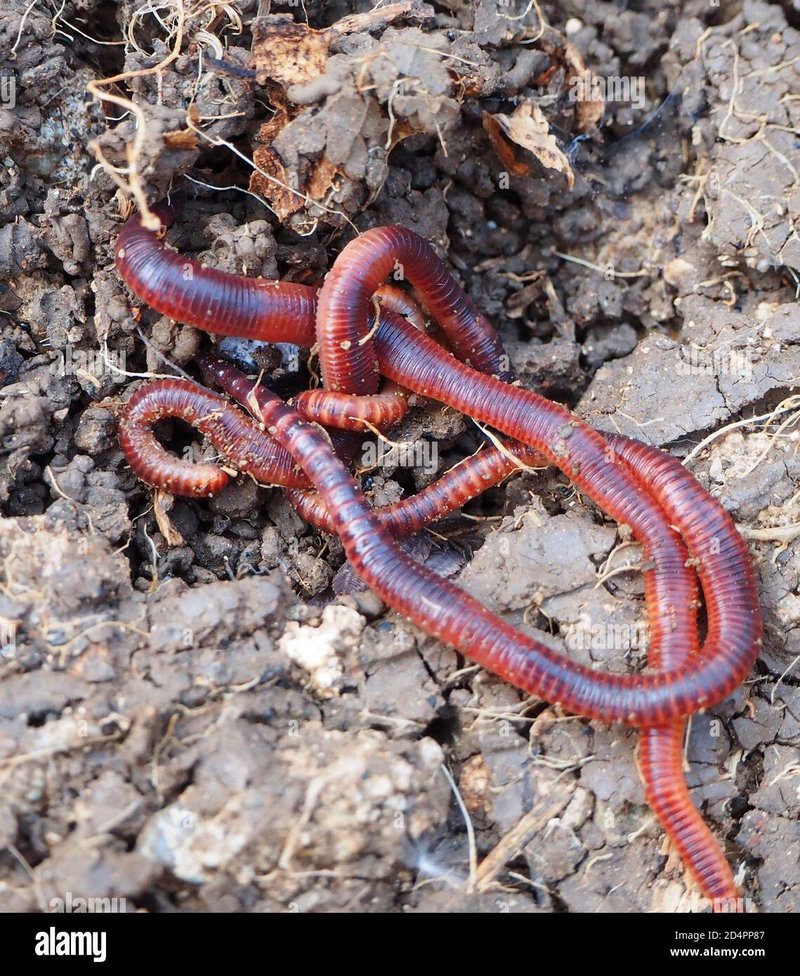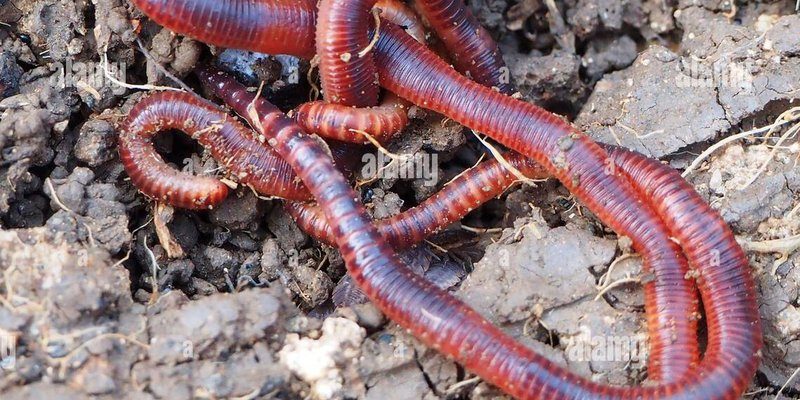
Imagine your garden as a bustling city. Earthworms are the hardworking citizens, improving the infrastructure. Meanwhile, their predators are akin to the city’s sly foxes or wily raccoons—always on the lookout for their next meal. But unlike those raccoons, which can be more obvious and friendly to spot, earthworm predators often go unnoticed. Today, we’ll dig deep, like the earthworms themselves, to uncover who these predators are, how they thrive, and what you can do to protect your slimy friends.
Common Natural Predators of Earthworms
Understanding the main predators of earthworms is crucial for any gardener wanting to maintain a healthy ecosystem.
Birds: The Feathered Foes
Birds are probably the most recognizable predators of earthworms. From robins plucking worms out of the ground to crows using their sharp intelligence to unearth them, these feathered friends can wreak havoc on your earthworm population. In fact, during rainy seasons when worms are more active, you might notice an uptick in bird activity—like they’re throwing a worm buffet party!
Birds often hunt in gardens because the soil is rich with nutrients and worms are abundant. They typically dive down, using their beaks to snag worms and other critters. So, if you find that your earthworms are disappearing, you might want to consider putting up some protective barriers, like mulch or ground cover, to help shield them from hungry birds.
Insects: The Unsung Killers
Next up, we have insects, a diverse and often unnoticed group that includes beetles, ants, and even some species of wasps. Each of these insects has its own way of preying on earthworms.
– **Beetles:** Certain beetles are known to hunt for earthworms, using their strong mandibles to crush them.
– **Ants:** Some ant species will actually farm aphids and, in return, get rid of worms in their territory.
– **Wasps:** Parasitic wasps may not directly consume earthworms, but they can lay eggs on them. Once the eggs hatch, the larvae can consume the worms from the inside out. It’s a brutal way to go!
To combat insect predation, keeping your garden diverse and filled with beneficial plants can help attract good insects that prey on these harmful species.
Rodents: The Plundering Parties
Rodents, like mice and voles, are another group that loves munching on earthworms. While they’re often associated with nibbling on garden plants, they also dig around for the rich nutrients that earthworms provide. Their burrows can disrupt earthworm habitats and directly cause a decline in their numbers.
Rodents can be tricky to deter since they’re so small and agile. Planting deterrents like strong-smelling herbs (think mint or rosemary) can help keep them at bay. If you notice signs of rodent activity, traps or natural repellents can also be effective.
Amphibians: The Slippery Threat
Believe it or not, amphibians—specifically frogs and toads—are part of the danger zone for earthworms. While they might seem benign, these creatures have a keen appetite for worms. Frogs often burrow into the ground during the day, and at night, they emerge to hunt for their favorite squirmy snack.
The presence of frogs and toads can actually be beneficial for your garden in moderation. They can help control pest populations, but too many of them can lead to significant reductions in earthworm numbers. If you want to foster a healthy balance, you can build small habitats for frogs and toads, ensuring they’re not the only predators in your garden.
Small Mammals: The Cunning Carnivores
Lastly, let’s talk about small mammals, such as shrews and moles. These little critters have a powerful impact on earthworm populations. Shrews, for instance, are voracious eaters, consuming several times their body weight in food daily, which includes plenty of earthworms.
Moles, on the other hand, create extensive burrowing systems in the soil. While digging, they can disturb and consume earthworms. To manage these small mammals, maintaining a balanced ecosystem with plenty of food sources can help. However, if populations become too high, you might need to consider humane traps to keep their numbers in check.
How to Protect Earthworms in Your Garden
Now that we’ve established who’s gunning for your precious earthworms, let’s get into how you can protect them.
Create a Balanced Ecosystem
The key to a thriving garden lies in balance. By promoting a diverse ecosystem filled with various plants and beneficial insects, you can help ensure that no single predator overwhelms the earthworm population. Consider planting flowers that attract pollinators and natural predators of harmful insects.
Encouraging biodiversity means fewer resources for the predators of worms. For instance, if you have a wide variety of plants, you’ll keep insect predators busy munching elsewhere.
Maintain Soil Health
Healthy soil is essential for healthy earthworms. Regularly adding organic matter, like compost, can help create a robust environment for worms to thrive. Healthier worms are often more resilient against predators.
Using techniques like no-till gardening can keep the soil structure intact, making it harder for predators to dig.
Mulching: A Protective Layer
Mulching is a fantastic strategy. Not only does it retain moisture and suppress weeds, but it also creates a barrier between earthworms and above-ground predators. Using organic mulch can make your garden less appealing to birds while providing cover for worms.
Consider using shredded leaves, straw, or wood chips as mulch. Not only will this protect your earthworms, but it’ll also improve your soil’s structure over time.
Avoid Chemical Pesticides
As tempting as they can be, chemical pesticides harm beneficial organisms, including earthworms. Using organic pest control methods helps keep the soil healthy and promotes a rich community of earthworms. Insecticidal soaps or natural predators like ladybugs can often do the trick just as effectively without the harsh chemicals.
In the grand scheme of your garden, earthworms play a tremendously important role. They’re the unsung heroes that work behind the scenes, breaking down organic matter and enriching the soil. While natural predators like birds, insects, and small mammals can pose threats, understanding their behaviors and creating a balanced ecosystem helps keep your garden thriving.
By fostering a diverse environment, maintaining healthy soil, and using strategies like mulching and avoiding harmful chemicals, you can protect your earthworm friends. And in return, they’ll work tirelessly to maintain the health of your garden. So, arm yourself with this knowledge, and go forth to create a vibrant, worm-friendly sanctuary that flourishes year after year. Happy gardening!

